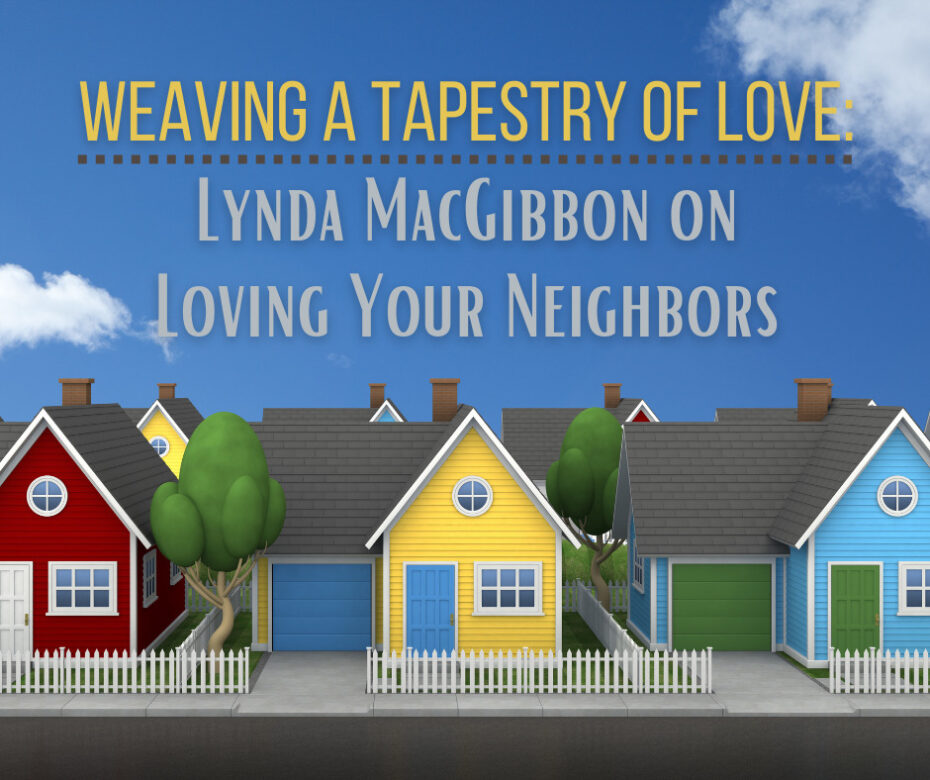How do you love your neighbors?
Since we do not have to work to earn our salvation (Eph 2:8-9; Gal 2:16), grace people are freed up to simply love our neighbors however they need to be loved. But how do you do it?
In My Vertical Neighborhood, Lynda MacGibbon tells the story of moving from rural New Brunswick to urban Toronto, where she found herself living with hundreds of strangers in an apartment building. How could she reach out to them?
As she tells her story, she started slowly, with an invitation to a regular Monday night dinner and then expanded to include events such as a monthly Writer’s Group, a yearly Christmas in pajamas, and eventually, a Bible Study (“Will they think I’m a fanatic if I invite them?” she asks, p. 70). Sometimes people came. Sometimes they didn’t. But she stayed consistent either way, and over time, she befriended many people.
If you want to be inspired to reach out to your neighbors or start a Bible Study or house church, I recommend reading MacGibbon’s book. She is an “everyman.” If she can be stretched out of her comfort zone to reach the people in her building, then so can you.
Instead of summarizing what happened to her, let me summarize the big question she started with and the answer she discovered.
Here’s her big question:
What does it mean, I asked God, to love my neighbor? And why the word love? (p. 142).
Her answer is wonderfully ordinary. Loving your neighbor does not mean engaging in big, mystical, super-religious activities but gets expressed in the most common ways. How common? Here is MacGibbon’s summary of what she did:
Pay attention. Notice. Engage. Welcome. Open your door. Invite people in. Accept their invitations in return. Give time. Risk being yourself. Share food. Share stories. Laugh. Debate. Apologize. Forgive. Cry. Celebrate. These are the threads that, when tossed to and fro between neighbors, becomes a tapestry of love (p. 142).
All of this takes time. Developing these relationships took her months and years. Expect the same.
MacGibbon reports that the polls indicate that most people are lonely. They want friends. They want connection. “They wish they had someone to talk to regularly” (p. 93). Maybe you can be that person. But you must take the risk. As MacGibbon puts it:
Toss your thread out. Catch the one coming your way. Do it now, when the person is right in front of you. Don’t wait (p. 142).


